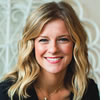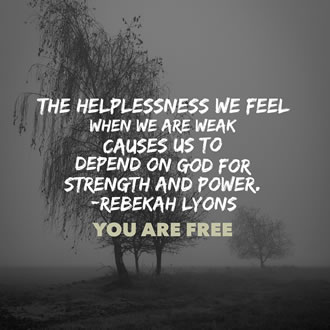There are quite a few references to great things happening at dawn, physically it's that small amount of time when darkness gives way to light, the sun is not yet fully risen but it's rays casts a brilliant shade bringing new promises of what that day will be. Likewise spiritually, we have times of dawn when the darkness that has once surrounded us begins to give way to the light of God. It's such a crucial time because we must treat the dawn with great care, it's a time of great battle, time to command the day, time to commune with God and time to receive fresh mercy from God because they are new every morning. When the day dawns, there are revelations and victories, the light of God shines through and our new beginning starts.
Our actions during the dawn affects what happens when the day has dawned. So I encourage us to rightly position ourselves to tackle our dawns.
Isaiah 58:8- talks about our light breaking forth as the dawn as a result of our true fast,
Psalm 108:2 - awake the dawn with noise and songs
Psalm 119:147- arise before dawn and cry out for help hoping in God.
God's Love Story:
One of the key bible passages God gave me this year is found in 2 Corinthians 12:9 which is that God's power is made strong in my weakness and I have found that to be true not only in my life but others too.
The story below was published as a free non-fiction content by Zondervan press.
You Are Free to Be Weak
 by Rebekah Lyons
by Rebekah LyonsFebruary 21, 2017
For the Spirit God gave us does not make us timid, but gives
us power, love and self-discipline. (2 Timothy 1:7, NKJV)
From my earliest memories, I repeated these words. I whispered them after nightmares about our house burning to the ground as my sisters and I escaped in our nightgowns. I whispered them when I left for college fifteen hours from home. And I whispered them as Gabe and I rushed Cade to the ER on countless nights during croup attacks. Children with Down syndrome suffer from small airways, and Cade’s croup always escalated quickly. With just seconds to spare, we’d throw on sweats and flip-flops, barrel down the stairs, and drive four miles to Northside Hospital.
It was only the beginning of how Cade stretched us.
When he was seven, Cade wandered off at the mall. Security found him dancing in the back of Hollister.
When he was nine, he went exploring in Central Park (it was our first week in New York City), where park rangers and a class from Boston College retrieved him in a golf cart.
When he was ten, during the week of Hurricane Irene, Cade disappeared in a water park in the Bahamas. We found him thirty minutes later, at the front of the line for the most popular waterslide, the four-story Leap of Faith. It turned out it was the fourth time he’d cut in front of everyone. No one had the heart to turn away his silly grin.
When he was twelve, he took himself shopping in downtown TriBeCa, sneaking from the children’s section of Barnes & Noble to the adjacent Bed Bath & Beyond. I found him barefoot in the checkout line, scanning the bar code of a Vitamix. At least my firstborn fugitive was health-conscious.

One Sunday afternoon just before we moved to Franklin, Cade left a party and crossed three streets in Queens by himself. Thanks to the NYPD and friends circling the blocks in their cars, we found him exiting a bar two streets away, Coke in hand. He is never afraid, this firstborn of mine. He has a chronic streak of independence and exploration. The rest of us respond with a chronic streak of panic, a chronic rush of adrenaline.
Over time, the recurring panic and resultant adrenaline rush took their toll on me. Experts say chronic trauma can be more damaging than a single devastating event, because you are never able to relax. The trauma is unrelenting. I felt this my first moments as a mama, when Cade was whisked to the NICU before I even got to hold him. I wore fear like a pair of ankle weights. I endured it until I couldn’t anymore, and fear moved in.
I can’t explain why fear is so pervasive in our society. I can only speak to the ways my own fear unraveled me and how God was faithful, even in the dark. My panic stemmed from the persistent trauma and physical exhaustion related to caring for a highly unpredictable child. But even though my anxiety was justifiable, that did not negate the damaging impact it had on my soul.
Most of us carry chronic stress for so long we no longer recognize the weight of it. That’s why I call it a grace when our bodies rebel. It is God’s way of saying, No more. Eventually, we can no longer sustain such a life. And what about those who carry the kinds of stress confessed to me during my travels? What about those who are abused, who struggle with bipolar disorder, depression, or suicidal thoughts? What of those who endure the darkest kinds of suffering meted out by humankind?
How many of us try to manage our stress with some method of numbing ourselves? The problem with pain management is exactly that: we are managing. What if we are called to acknowledge our pain, to confess our inability to beat it? What if we’re called to admit our weakness and declare that only God’s strength is sufficient?
God wants us to reveal our weakness—to recognize what traumatizes and exhausts us. He wants us to confess our wounds, our sources of pain and stress, and bring them into the light so he can redeem and transform them with his strength. Have you confessed to him your exhaustion, your fear, your stress? Have you confessed that God wants to display his strength in your weakness?
Mental and emotional healing can take longer than physical healing, because emotional ailments often stay hidden for much longer and therefore have deeper roots. It is hard to heal what has been hidden, and sometimes God calls us to sit in the emotional pain for weeks, months, or even years before the fullness of his healing comes.
I’m often asked, “When you were in the thick of panic attacks and depression, did you ever feel disqualified from ministering to others?” During that season, I wrestled silently. Perhaps I was afraid that if I acknowledged my weakness, others would think my faith was small. I didn’t go public about my battle until after God rescued me. I am not the only person to hide my areas of weakness.
These days, I proactively confess my weakness and my continuing need for God’s help in my fight against panic. Just because I’m healed from one set of fears doesn’t mean I should abandon the process. Fear always threatens; panic could take hold from another direction. There may even be hidden layers of fear. So on a weekly basis I press in, ask him to show me anything I’m not seeing.
The need for self-examination never ends. Paul tells us, “Everyone ought to examine themselves before they eat of the bread and drink from the cup” (1 Corinthians 11:28). If we do not, he writes, we become sick and weak, bringing judgment upon ourselves.3 Heart examinations are powerful. I wrestle with my own in the early hours, through prayers and writing in my journal.
The helplessness we feel when we are weak causes us to depend on God for strength and power. This kind of dependence and intimacy is the wellspring of abiding with him. In our utter dependency on God, we learn weakness is nothing to be ashamed of; if we acknowledge it and take it to the Light, it is a tool God uses to expose things we’ve buried, things he wants to heal in us.
God delights in us. He doesn’t want us to live in bondage. When we invite him into our places of weakness, he comes and says, “Let’s nail this thing. Let’s not dance around it, perform around it, or seek validation to make it feel better. Let’s just go after it.”
This kind of healing could bring you into one of your richest seasons, but make no mistake about it: when you confess that God is the strength in your weakness, things may seem worse for a time. Why? Because when you find yourself on the cusp of strongholds being released, the enemy marches in double-time.
This is why it is critical to keep declaring the truth: God has promised that when we are dependent on him, he walks with us. Then we can ask whatever we will, and he will lavish us with his power, his goodness, his grace, his kindness, and his mercy. He doesn’t want to keep us where we are. When we are brave enough to ask him to meet us in our weakness, he comes. Isn’t this encouraging?
_____________
Adapted from You Are Free: Be Who You Already Are by Rebekah Lyons. Learn more at YouAreFreeBook.com.



No comments:
Post a Comment